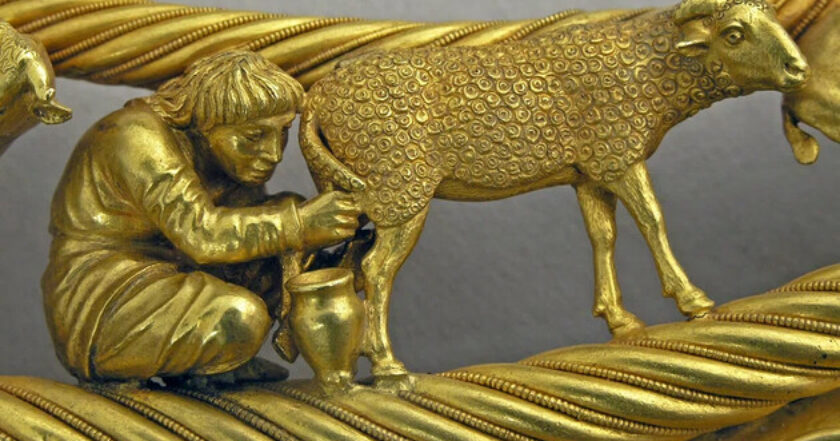Crimean museum artifacts, displayed in Amsterdam, return to Ukraine after decade-long legal battle

Photo: Dmytro Klochko/Museum of Historical Jewelry of Ukraine
Artifacts from four Crimean museums, presented at the "Crimea: Gold and Secrets of the Black Sea" exhibition in Amsterdam, have been returned to Ukraine after long legal battles.
The "Scythian gold" has been returned after ten years of legal proceedings in the Netherlands, Rubryka reports, referring to the National Museum of Ukrainian History.
Allard Pierson Museum transferred the exhibits to the National Museum of Ukrainian History, where they will be preserved until the de-occupation of Crimea.
Currently, experts are examining the condition of these items. It includes 565 items, such as Ancient sculptures, Scythian and Sarmatian jewelry, and Chinese lacquer boxes that are two thousand years old.
"During the legal disputes, our museum was identified as the storage location for the collections of Crimean museums," Fedor Androshchuk, the Director-General of the National Museum of Ukrainian History, said. "This means that our museum will make every effort to preserve them and to allow citizens and guests of Ukraine to see them."
What we know about the "Scythian gold"
In February 2014, the "Scythian Gold" collection was taken to Amsterdam to participate in the "Crimea: Gold and Secrets of the Black Sea" exhibition held at the Allard Pierson Museum.
Among the 565 exhibition items were artifacts from Scythian gold, ceremonial helmets, precious stones, and weapons of ancient Greeks and Scythians.
After the illegal occupation of Crimea by Russia, which happened after the exhibition's opening, the question arose about to whom the collection, with a total insurance value of $10 million, should return. After the occupation, Russia claimed its rights to part of the collection belonging to Crimean museums. Ukraine, on its part, argued that the exhibits could not be returned to the temporarily occupied territory, which is not under Ukrainian control and should be handed over directly to Ukraine.
In December 2016, the District Administrative Court of Amsterdam recognized Ukraine's rights to the collection and ordered its transfer to Kyiv.
On January 26, 2022, the so-called Russian Crimean museums in temporarily occupied Crimea filed a cassation complaint against the decision of the Amsterdam Court of Appeal about the return of the "Scythian gold" collection to Ukraine.
The "Scythian Gold" must be returned to Ukraine — such a decision was made by the Amsterdam Court of Appeal on October 26, 2021.
In June 2023, after nearly ten years of legal proceedings, the Supreme Court of the Netherlands rejected the cassation appeal of the Crimean museums, confirming the decision of the appeal that satisfied Ukraine's claims.
After that, Ukraine discussed with the Netherlands the free return of the "Scythian gold." Ukraine was supposed to pay the Amsterdam Museum for storing the collection for almost ten years. The museum in the Netherlands canceled the debts for storing the "Scythian gold."




















































